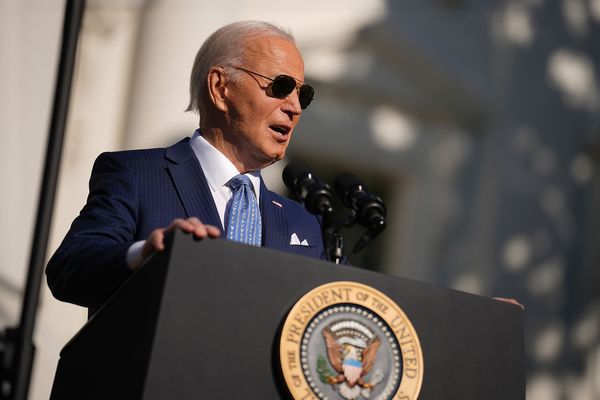
London (AFP) - US and European stock markets rose Friday after a global rout, but investors remain anxious that inflation-fighting interest rate hikes could spark a recession.
Investors were shaken this week after the US Federal Reserve unleashed its biggest hike in borrowing costs for almost 30 years to tackle runaway consumer prices.
This was followed by the fifth straight hike by the Bank of England and the first in 15 years by the Swiss central bank, underscoring the growing global concerns about inflation.
On Friday, however, the Bank of Japan stood by its decision not to raise its rate, sending the yen close to the lowest level against the dollar since 1998.
Officials in Tokyo insist that low rates are still needed to nurture a struggling economy, though the BoJ did say it "was necessary to pay due attention to developments in financial and foreign exchange markets".
Asian stock markets mostly closed lower Friday after an overnight slump on Wall Street.
US indices opened higher on Friday, with the Dow back up above 30,000 points after falling below the mark for the first time in more than a year.
European markets were all about 0.5 percent higher in afternoon trading, lower than earlier in the day.
"Stock markets are ending the week on a positive note, not that anyone is getting carried away with today's price action after turbulent trading conditions in recent days," said Craig Erlam, analyst at OANDA online trading platform.
"Recessions are increasingly likely as central banks race to dramatically raise rates before inflation spirals out of control," he said.
'Sinking feeling'
Commentators remain unconvinced that Friday's rebound would be prolonged -- because they argue that further rate tightening is needed to bring down sky-high inflation.
Investors worry that while the rate increases can help tame inflation, they can have the adverse side effect of crimping economic growth.
"There is unlikely to be sustained relief from the sinking feeling that has hit financial markets this week, as worries rise that countries around the world won't avoid falling into the economic pit of recession," said Hargreaves Lansdown analyst Susannah Streeter.
"After the initial boost of optimism that the Federal Reserve was going to get a handle on inflation...concerns mounted that the price spiral was going to be an even harder nut to crack without fresh aggressive hikes."
Stock markets have been tumbling for months as traders contemplate the end of the era of cheap cash that had sent share prices to record or multi-year highs.
Inflation worldwide stands at levels not seen for decades owing in particular to surges in energy and food prices.
Oil prices, however, fell by more than two percent on Friday, though they remained elevated at more than $117 per barrel for the main international contract.
Key figures at around 1340 GMT
New York - Dow: UP 0.3 percent at 30,012.30 points
London - FTSE 100: UP 0.5 percent at 7,079.02
Frankfurt - DAX: UP 0.6 percent at 13,119.37
Paris - CAC 40: UP 0.6 percent at 5,921.31
EURO STOXX 50: UP 0.7 percent at 3,453.20
Tokyo - Nikkei 225: DOWN 1.8 percent at 25,963.00 (close)
Hong Kong - Hang Seng Index: UP 1.1 percent at 21,075.00 (close)
Shanghai - Composite: UP 1.0 percent at 3,316.79 (close)
Euro/dollar: DOWN at $1.0482 from $1.0549 late Thursday
Pound/dollar: DOWN at $1.2235 from $1.2353
Euro/pound: UP at 85.68 pence from 85.41 pence
Dollar/yen: UP at 134.80 yen from 132.21 yen
Brent North Sea crude: DOWN 2.2 percent at $117.15 per barrel
West Texas Intermediate: DOWN 2.4 percent at $112.45
burs-lth/jv







